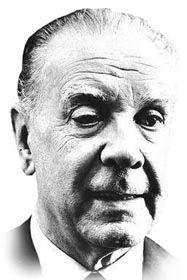Speak Not, Memory
At one level, all of life is the accumulation of memories, a building toward the inevitable moment when we can bore a younger generation (just we were bored when younger) by stories that have grown threadbare in the retelling. But at another level, all of life is a process of forgetting, a building toward the inevitable moment when the joke about “early Alzheimer’s” isn’t really funny any more. Or more simply, when the names and faces of youth can no longer be recalled because they no longer matter.
The inconvenience of an occasional memory lapse usually sparks a regret that we cannot remember more. Imagine how convenient it would be if we could recall our college calculus as well as we knew it then, or we could recite procedural rules as precisely as we learned them for the bar exam. The simple truth is that our brains were not wired to remember everything, and life would be immeasurable more difficult if we did.
 In his short story, “Funes the Memorius,” Jorge Luis Borges explores this fundamental principle of memory. In Borges’ story, Funes has lost consciousness when he was thrown off a horse, and after regaining it, he couldn’t forget anything he had seen or heard.
In his short story, “Funes the Memorius,” Jorge Luis Borges explores this fundamental principle of memory. In Borges’ story, Funes has lost consciousness when he was thrown off a horse, and after regaining it, he couldn’t forget anything he had seen or heard.
But this fabulous talent was not in the end an advantage; it was paralyzing:
The inconvenience of an occasional memory lapse usually sparks a regret that we cannot remember more. Imagine how convenient it would be if we could recall our college calculus as well as we knew it then, or we could recite procedural rules as precisely as we learned them for the bar exam. The simple truth is that our brains were not wired to remember everything, and life would be immeasurable more difficult if we did.
 In his short story, “Funes the Memorius,” Jorge Luis Borges explores this fundamental principle of memory. In Borges’ story, Funes has lost consciousness when he was thrown off a horse, and after regaining it, he couldn’t forget anything he had seen or heard.
In his short story, “Funes the Memorius,” Jorge Luis Borges explores this fundamental principle of memory. In Borges’ story, Funes has lost consciousness when he was thrown off a horse, and after regaining it, he couldn’t forget anything he had seen or heard.He remembered the shape of the clouds in the south at dawn on the 30th of April of 1882, and he could compare them in his recollection with the marbled grain in the design of a leather-bound book which he had seen only once…He could remember all his dreams, all his fancies. Two or three times he has reconstructed an entire day. He told me: I have more memories in myself alone than all med have had since the world was a world.
But this fabulous talent was not in the end an advantage; it was paralyzing:
I suspect that he was not very capable of thought. To think is to forget a difference, to generalize, to abstract. In the overly replete world of Funes, there were nothing but details, continuous details.Our memories must be selective in order for us to be able to function. Our brains must sort and sift, to clear away until only what remains is that which matters. Imagine a marriage where your spouse remembered with clarity every frailty and shortcoming. Or how hard it would be if you couldn’t put setbacks and defeats behind you, but had to remember them, eternally and perfectly. We forget our college calculus, and even the name of the girl across the classroom whose eye caught yours for that sweet and blessed instant, because we have to move on. The process of forgetting is a kind of refinement, a distillation of the essence, that permits us to see our lives not as a crazy quilt of sights and sounds, but as a progression that has a more general meaning and purpose. If we saw all at once, we could not see the center.




0 Comments:
Post a Comment
<< Home